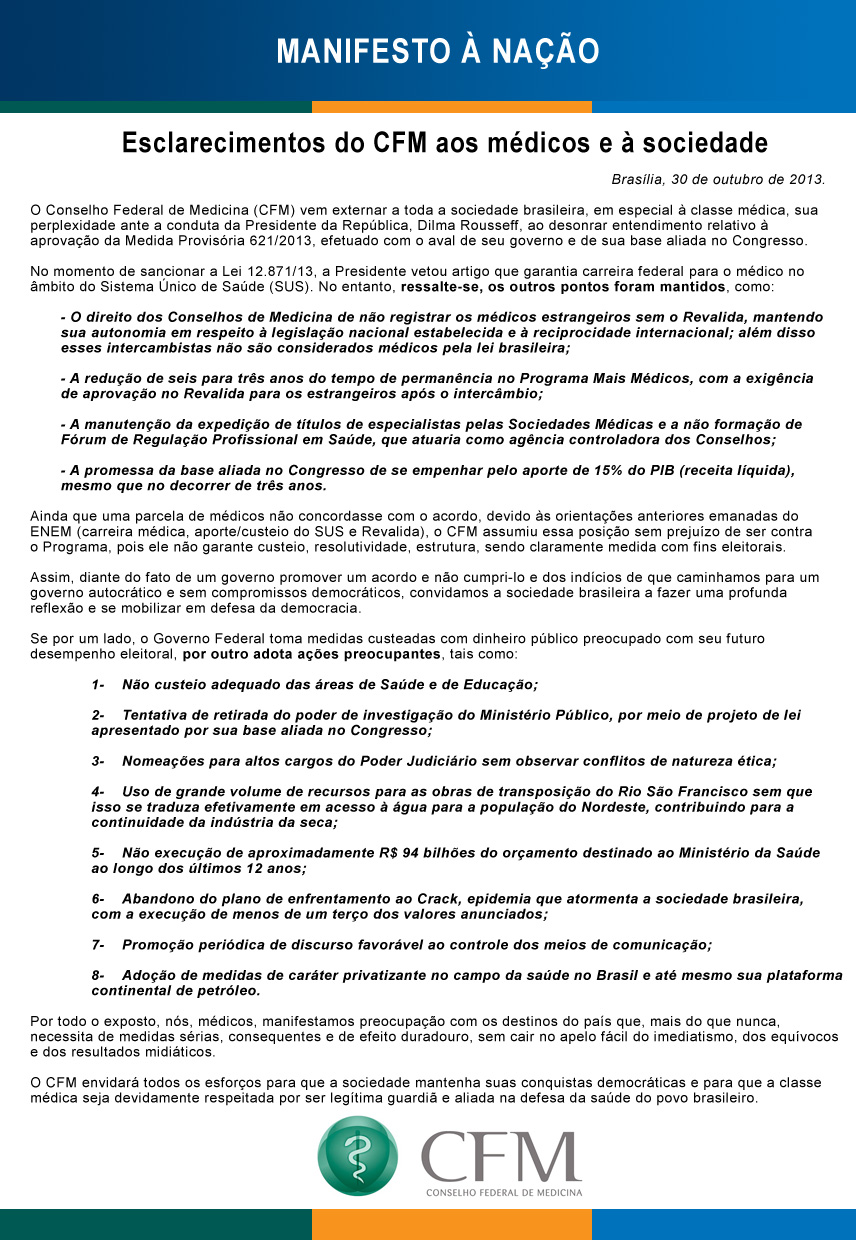
This Blog AMICOR is a communication instrument of a group of friends primarily interested in health promotion, with a focus on cardiovascular diseases prevention. To contact send a message to achutti@gmail.com http://achutti.blogspot.com
Translate AMICOR contents if you like
Wednesday, October 30, 2013
Snowball sampling
BALDIN, Nelma – Univille
nelma@univille.br
MUNHOZ, Elzira M. Bagatin – Univille
elzira.b@univille.br
Eixo Temático:
Cultura, Currículo e Saberes Agência Financiadora: Fundo de Apoio à Pesquisa – FAP-Univille
http://en.wikipedia.org/wiki/Snowball_sampling
Review of Social Determinants
Review of Social Determinants and the Health Divide in the WHO European Region
Report abstract
The WHO Regional Office for Europe commissioned this review of social determinants of health and the health divide to identify actions needed to address health inequities within and between countries across the 53 Member States of the European Region. The conclusions and recommendations of the review informed the development of Health 2020, the new European policy framework for health and well-being – along with a companion study on governance for health in the 21st century.
Much more is now understood about the extent and social causes of these inequities, particularly since the 2008 publication of the report of the Commission on Social Determinants of Health (CSDH) - action on the social determinants of health across the life-course and in wider social and economic spheres are required to achieve greater health equity and protect future generations.
The European review builds on the global evidence and recommends policies to ensure progress can be made in reducing health inequities and the health divide across all countries, including those with low incomes. It provides numerous case studies - examples and experiences of addressing social determinants of health and health inequities in the Region. One of the key goals of the review was to identify what can be implemented with sufficient scale and intensity to make a difference across the diverse contexts of the European Region.
This review was carried out by a cross-disciplinary consortium of Europe’s leading experts, chaired by Sir Michael Marmot and supported by a joint secretariat from the Institute and the WHO Regional Office for Europe. The review was informed and shaped by the work of 13 task groups and guided by a senior advisory board.
Above, you can download the full report, executive summary and interim report. There is also a press release available on our press page, and details of an article based on the review and published in The Lancet on our articles page.
If you would like a hard copy of the report or the executive summary, please email n.afzal@ucl.ac.uk
By Institute of Health Equity Oct 2013
On capital punishment
Debating the Evidence of Capital Punishment
Michael Marmot
 Capital punishment terminates a human life. Is there any case at all for a doctor being in favour of it? Hippocrates; first, do no harm; do we really need to spell it out?
Capital punishment terminates a human life. Is there any case at all for a doctor being in favour of it? Hippocrates; first, do no harm; do we really need to spell it out?
 Capital punishment terminates a human life. Is there any case at all for a doctor being in favour of it? Hippocrates; first, do no harm; do we really need to spell it out?
Capital punishment terminates a human life. Is there any case at all for a doctor being in favour of it? Hippocrates; first, do no harm; do we really need to spell it out?
At a recent meeting of the Council of the World Medical Association – I represent the BMA there – there was debate over a resolution deploring capital punishment and, specifically, medical involvement. Most national medical associations were in favour of such condemnation, but not all. One appeal was to justice: he shot others, the argument runs, surely he deserves to die. Another appeal was to protecting the public: he is a terrorist, he bombed and maimed, unless we execute him, he’ll kill others.
My contribution to the discussion, fully ready to be criticised by the lawyers in the room, was that there are three possible reasons for the criminal justice system: deterrence, revenge, and protecting the public.
Taking them in reverse order: protecting the public. If a dangerous killer or rapist has been caught, the public need to be protected. Locking up the convicted criminal up is a way of doing that. It is not necessary to execute them in order to protect the public. In fact, in the USA, those handed a sentence of execution, can spend twenty years or more behind bars, as the appeals go on, so the main way the public is protected is locking up the criminal – even if the criminal has been sentenced to death. After such a time, and with the public protected, why go through with the execution?/.../
Tuesday, October 29, 2013
Poverty
Growing Up Poor Changes Young Brains
Published: Oct 28, 2013

By Chris Kaiser
Exposure to poverty in early childhood was associated with smaller brain structures later in life, but nurturing seemed to offset poverty's negative effect, researchers found.
MRI scans showed that impoverished children had smaller white.......Joan Luby, MD, of the Washington University School of Medicine in St. Louis, and colleagues.
*******************************************"The finding that the effects of poverty on hippocampal development are mediated through care-giving and stressful life events further underscores the importance of high-quality early childhood care-giving, a task that can be achieved through parenting education and support, as well as through preschool programs that provide high-quality supplementary care-giving and safe haven to vulnerable young children," the authors concluded./.../
Monday, October 28, 2013
Evidence-Based Medicine
Viewpoint | October 28, 2013
The Optimal Practice of Evidence-Based MedicineIncorporating Patient Preferences in Practice Guidelines FREEONLINE FIRST
Victor M. Montori, MD, MSc1,2,3; Juan Pablo Brito, MBBS1,2,3; M. Hassan Murad, MD, MPH1,2,3
JAMA. Published online October 28, 2013. doi:10.1001/jama.2013.281422
Guideline panelists must recognize, with humility, the challenges they face in working often without access to informed patient preferences and acknowledge that their recommendations should rarely assume uniform patient values and contexts in favor of a particular course of action. Guideline panels, therefore, should rarely formulate strong recommendations. Panels should become much more comfortable with ambiguity, both in the tradeoffs involved and in the recommendations given, and explicitly report how patient preferences and context were considered in formulating the panels’ recommendations. Clinicians need guidance and clear guidance helps and supports efficient practices. Yet, panels must be wise in recognizing when this expediency is appropriate for patient care and when it hinders patient-centered care. Clinicians should remember that taking care of patients is supposed to be difficult. Although guidelines may simplify this task, when patient preferences and context matter, guidelines must not replace clinicians’ compassionate and mindful engagement of the patient in making decisions together. This is the optimal practice of evidence-based medicine.
Sunday, October 27, 2013
Health inequality in UK
Health inequality is blighting the UK
Life expectancy is going up, but so too is the gap between rich and poor

SHARE
Overall, health has indeed improved, but at much the same rate as it has for over 100 years. But analysis by The Equality Trust has found that in the last 20 years alone, the gap in life expectancy for those in different local authority areas has increased 41 per cent for men and a staggering 73 per cent for women.Yesterday’s publication of life expectancy figures seemed to reveal a population living longer, healthier, and according to some, happier lives. But this obscures a more important story - the persistent and alarming gap in life expectancy between those at the top and bottom.
The Local Authority with the highest male life expectancy is East Dorset. Here men can now expect to live almost a decade (8.9 years) longer than those in Blackpool, the authority with the lowest life expectancy. The gap is just as dramatic for women. Those in Purbeck live over 7 years longer than those in Manchester, and there is now an 18 year difference in 'healthy life expectancy' between women living in Richmond (72 yrs) and Tower Hamlets (54 yrs)./.../
2625 - AMICOR 16
The Urban Health Institute

Visit the Urban Health Institute Web siteThe Johns Hopkins Urban Health Institute (UHI) was established in July 2000. It receives core funding and support from virtually all the schools that constitute The Johns Hopkins University. UHI was a principal recommendation of the Urban Health Council, a group of community residents, clergy, local leaders, business representatives, city officials, and faculty, staff, and students from the Johns Hopkins Institutions. Dr. William Brody, president of Johns Hopkins University, had charged the group with exploring ways that the research, teaching, and clinical expertise of the university could be better harnessed for the benefit of the residents of East Baltimore./
Visit the Urban Health Institute Web siteThe Johns Hopkins Urban Health Institute (UHI) was established in July 2000. It receives core funding and support from virtually all the schools that constitute The Johns Hopkins University. UHI was a principal recommendation of the Urban Health Council, a group of community residents, clergy, local leaders, business representatives, city officials, and faculty, staff, and students from the Johns Hopkins Institutions. Dr. William Brody, president of Johns Hopkins University, had charged the group with exploring ways that the research, teaching, and clinical expertise of the university could be better harnessed for the benefit of the residents of East Baltimore./
Stop watching us

Stop watchig usOctober 25, 2013 *[+]*[image: stop_watching_us] On October 26th, the 12th anniversary of the signing of the USA Patriot Act, *StopWatching.us*— a coalition of more than 100 public advocacy organizations and companies from across the political spectrum — is holding the largest rally yet against NSA surveillance. According to *StopWatching.us*: The revelations about the National Security Agency’s surveillance apparatus, if true, represent a stunning abuse of our basic rights. We demand the… read more/.../
brain-inspired 3D computer

IBM unveils concept for a future brain-inspired 3D computerOctober 20, 2013 *[+]* IBM Zurick’s vision of a 3D computer (credit: IBM Zurich) IBM has unveiled a prototype of a new brain-inspired computer powered by what it calls “electronic blood,” *BBC News*reports. The firm says it is learning from nature by building computers fueled and cooled by a liquid, like our minds. The human brain packs phenomenal computing power into a tiny space and uses only 20 watts of energy – an efficiency IBM is keen to match. Its new “redox flow” system pumps an electrolyte “blood” through a computer, ca... mais »
consciousness

Is a scientific definition of consciousness possible? Consciousness arises from the mode in which billions of neurons communicate with one another, psychologists suggest October 20, 2013 *[+]* Consciousness emerges from communication between brain areas (194 regions of interest were studied) and is mainly tied to cortico-cortical (left and center) and not subcortical and cerebellar areas (right) (credit: Martin M. Monti et al./*PLoS Computational Biology*) UCLA psychologists have used brain-imaging techniques to study what happens to the human brain when it slips into unconsciousness. ... mais »
A super antioxidant

A super antioxidant based on material used in vehicle catalytic converters Could help treat traumatic brain injury, cardiac arrest, and Alzheimer’s patients, guard against radiation-induced side effects suffered by cancer patients, perhaps even slow the effects of aging October 22, 2013 [image: rice_antioxidants] Oleylamine (red dots) and oleac acid (blue) layers serve to protect a cerium oxide nanosphere that catalyzes reactive oxygen species by absorbing and turning them into less-harmful molecules. The finding could help treat injuries, guard against radiation-induced side effects o... mais »
Gaaxy 30 billion light years away

Most distant galaxy discovered: 30 billion light years awayOctober 24, 2013 [image: Galaxy_Large_Tilvi] This image from the Hubble Space Telescope CANDELS survey highlights the most distant galaxy in the universe with a measured distance, dubbed z8_GND_5296 (credit: V. Tilvi, Texas A&M University; S.L. Finkelstein, University of Texas at Austin; C. Papovich, Texas A&M University; CANDELS Team and Hubble Space Telescope/NASA) The most distant spectroscopically confirmed galaxy ever found — one created at about 700 million years after the Big Bang — has been detected by astronomers at T... mais »
ON cortical columns in brain

Neuroscientists find cortical columns in brain not uniform, challenging large-scale simulation modelsOctober 25, 2013 *[+]* Cell-type-specific 3D reconstruction of five neighboring barrel columns in rat vibrissal cortex (credit: Marcel Oberlaender et al.) Despite a long-held scientific belief that cortex is built up by repeatedly occurring elementary units called cortical columns, a new study by neuroscientists has found that the structure of the brain’s cortical columns can largely deviate within individual animals, and even within a specific cortical area. The study also found that ... mais »
Finding Hope in a Hungry World

40 Chances to Create a Better Food System Just one of Food Tank's 40 stories of hope in food and nutrition security, food sovereignty, and food justice, the Self-Employed Women's Association in Ahmedabad, India is empowering women farmers. (Bernard Pollack) Philanthropist farmer Howard G. Buffett recently released his new book, *40 Chances: Finding Hope in a Hungry World*, which traces his journey to learn about the challenges and successes of farmers around the world as they battle global food insecurity. In an article in the Huffington Post, Buffett explains the “40 Chances mindse... mais »
PAHO

Durante as tratativas e reuniões de grupos para dar partida a novo projeto dentro do contexto de Saúde Urbana, Ambiente e Desigualdade (com sede no Departamento de Medicina Social da UFRGS) em colaboração com a Organização Pan-Americana da Saúde (PAHO) e o Hospital Moinhos de Vento, buscava recordar desde quando e como começou nosso relacionamento com OPAS/OMS. Buscava um artigo escrito pelo meus amigos já falecidos Thomas Strasser e Jry Rotta sobre o Programa de Controle da Febre Reumática, marco importante nessa história. Foi no *WHO Chronicle Vol. 27, No. 2 de Fevereiro de 1973*, q...mais »
E-cigarettes
*Medscape: There is a growing health concern about the electronic cigarette and how it is being marketed to consumers. We have made so much progress in recent years fighting the tobacco problem in this country, and now we are faced with a new product that may be just as concerning. What is the CDC doing to address this concern?* *Dr. Frieden: *What we are doing first is tracking, and we are seeing some very concerning trends. Use of e-cigarettes in youth doubled just in the past year, and many kids are starting out with e-cigarettes and then going on to smoke conventional cigarettes.... mais »
Health in the Green Economy

*Recomendado pela AMICOR Maria Inês Reinert Azambuja*Health in the Green EconomyExploring how health can benefit from low-carbon & energy-efficient development *WHO's Health in the Green Economy sector briefings* examine the health impacts of climate change mitigation strategies considered by the Intergovernmental Panel on Climate Change in their *Fourth Assessment Report * (Climate Change, 2007). Large, immediate health benefits from some climate change strategies are to be expected. Other strategies, however, may involve health risks or tradeoffs. These issues should be considered i... mais »
Jardim Botânico do Rio

Jardim Botânico do Rio de Janeiro se torna internacional Registros do herbário estão disponíveis em banco de dados que reúne maiores coleções do mundo MARIA GUIMARÃES | Edição Online 21:18 14 de outubro de 2013 © GBIF [image: Mapa dos registros do Jardim Botânico do Rio de Janeiro no GBIF] Mapa dos registros do Jardim Botânico do Rio de Janeiro no GBIF Mais do que um deslumbrante parque fundado no século XIX, o Jardim Botânico do Rio de Janeiro (JBRJ) agora está alojado junto aos principais museus internacionais. É a primeira coleção biológica brasileira a compartilhar os dados de seu ...mais »
Urban Health Johns Hopkins
The Urban Health Institute
Visit the Urban Health Institute Web site
The Johns Hopkins Urban Health Institute (UHI) was established in July 2000. It receives core funding and support from virtually all the schools that constitute The Johns Hopkins University. UHI was a principal recommendation of the Urban Health Council, a group of community residents, clergy, local leaders, business representatives, city officials, and faculty, staff, and students from the Johns Hopkins Institutions. Dr. William Brody, president of Johns Hopkins University, had charged the group with exploring ways that the research, teaching, and clinical expertise of the university could be better harnessed for the benefit of the residents of East Baltimore.
UHI operated under the interim directorship of Thomas P. O'Toole, M.D., until June 2001 when Claude Earl Fox, MD, M.P.H. was appointed permanent director. Since its establishment, UHI has engaged permanent and shared staff, established its strategic vision, and initiated and completed projects.
Mission:The mission of UHI is to marshal the resources of the Johns Hopkins Institutions as well as other, external resources to improve the health and well-being of the residents of East Baltimore and Baltimore City and to promote evidence-based interventions to solve urban health problems nationwide.
Goals:
111 Market Place, Suite 850
Baltimore, MD 21202-4036
410-895-1100
The Johns Hopkins Urban Health Institute (UHI) was established in July 2000. It receives core funding and support from virtually all the schools that constitute The Johns Hopkins University. UHI was a principal recommendation of the Urban Health Council, a group of community residents, clergy, local leaders, business representatives, city officials, and faculty, staff, and students from the Johns Hopkins Institutions. Dr. William Brody, president of Johns Hopkins University, had charged the group with exploring ways that the research, teaching, and clinical expertise of the university could be better harnessed for the benefit of the residents of East Baltimore.
UHI operated under the interim directorship of Thomas P. O'Toole, M.D., until June 2001 when Claude Earl Fox, MD, M.P.H. was appointed permanent director. Since its establishment, UHI has engaged permanent and shared staff, established its strategic vision, and initiated and completed projects.
Mission:The mission of UHI is to marshal the resources of the Johns Hopkins Institutions as well as other, external resources to improve the health and well-being of the residents of East Baltimore and Baltimore City and to promote evidence-based interventions to solve urban health problems nationwide.
Goals:
- Provide Economic Stimulus Through Training and Employment Assistance
- Strengthen and Enhance Community-Based Research Partnerships
- Enhance the Infrastructure of the Community
- Provide 100% Access to Health Care with No Disparities
111 Market Place, Suite 850
Baltimore, MD 21202-4036
410-895-1100
Stop watching us
Stop watchig us
October 25, 2013
On October 26th, the 12th anniversary of the signing of the USA Patriot Act, StopWatching.us— a coalition of more than 100 public advocacy organizations and companies from across the political spectrum — is holding the largest rally yet against NSA surveillance.
According to StopWatching.us:
The revelations about the National Security Agency’s surveillance apparatus, if true, represent a stunning abuse of our basic rights. We demand the… read more/.../
The revelations about the National Security Agency’s surveillance apparatus, if true, represent a stunning abuse of our basic rights. We demand the… read more/.../
brain-inspired 3D computer
IBM unveils concept for a future brain-inspired 3D computer
October 20, 2013
[+]

IBM Zurick’s vision of a 3D computer (credit: IBM Zurich)
IBM has unveiled a prototype of a new brain-inspired computer powered by what it calls “electronic blood,” BBC Newsreports.
The firm says it is learning from nature by building computers fueled and cooled by a liquid, like our minds.
The human brain packs phenomenal computing power into a tiny space and uses only 20 watts of energy – an efficiency IBM is keen to match.
Its new “redox flow” system pumps an electrolyte “blood” through a computer, carrying power in and taking heat out.
A very basic model was demonstrated this week at IBM’s Zurich lab by Dr. Patrick Ruch and Dr. Bruno Michel./.../
consciousness
Is a scientific definition of consciousness possible?
Consciousness arises from the mode in which billions of neurons communicate with one another, psychologists suggest
October 20, 2013
[+]

Consciousness emerges from communication between brain areas (194 regions of interest were studied) and is mainly tied to cortico-cortical (left and center) and not subcortical and cerebellar areas (right) (credit: Martin M. Monti et al./PLoS Computational Biology)
UCLA psychologists have used brain-imaging techniques to study what happens to the human brain when it slips into unconsciousness.
Their research, published in the online open-access journal PLOS Computational Biology, is an initial step toward developing a scientific definition of consciousness, the researchers say.
“In terms of brain function, the difference between being conscious and unconscious is a bit like the difference between driving from Los Angeles to New York in a straight line versus having to cover the same route hopping on and off several buses that force you to take a ‘zig-zag’ route and stop in several places,” said/,,,/
A super antioxidant
A super antioxidant based on material used in vehicle catalytic converters
Could help treat traumatic brain injury, cardiac arrest, and Alzheimer’s patients, guard against radiation-induced side effects suffered by cancer patients, perhaps even slow the effects of aging
October 22, 2013

Oleylamine (red dots) and oleac acid (blue) layers serve to protect a cerium oxide nanosphere that catalyzes reactive oxygen species by absorbing and turning them into less-harmful molecules. The finding could help treat injuries, guard against radiation-induced side effects of cancer therapy and protect astronauts from space radiation. (Credit: Colvin Group/Rice University)
Scientists at Rice University are enhancing the natural antioxidant properties of cerium oxide, used in vehicle catalytic converters, to make it useful for medical applications.
Rice chemist Vicki Colvin led a team that created small, uniform spheres of cerium oxide and gave them a thin coating of fatty oleic acid to make them biocompatible.
The researchers say their discovery has the potential to help treat traumatic brain injury, cardiac arrest and Alzheimer’s patients and could guard against radiation-induced side effects suffered by cancer patients.
Their nanoparticles also have potential to protect astronauts from long-term exposure to radiation in space and perhaps even slow the effects of aging, they reported.
Gaaxy 30 billion light years away
Most distant galaxy discovered: 30 billion light years away
October 24, 2013

This image from the Hubble Space Telescope CANDELS survey highlights the most distant galaxy in the universe with a measured distance, dubbed z8_GND_5296 (credit: V. Tilvi, Texas A&M University; S.L. Finkelstein, University of Texas at Austin; C. Papovich, Texas A&M University; CANDELS Team and Hubble Space Telescope/NASA)
The most distant spectroscopically confirmed galaxy ever found — one created at about 700 million years after the Big Bang — has been detected by astronomers at Texas A&M University and the University of Texas at Austin/.../
ON cortical columns in brain
Neuroscientists find cortical columns in brain not uniform, challenging large-scale simulation models
October 25, 2013
[+]

Cell-type-specific 3D reconstruction of five neighboring barrel columns in rat vibrissal cortex (credit: Marcel Oberlaender et al.)
Despite a long-held scientific belief that cortex is built up by repeatedly occurring elementary units called cortical columns, a new study by neuroscientists has found that the structure of the brain’s cortical columns can largely deviate within individual animals, and even within a specific cortical area.
The study also found that these structural differences are not arbitrary, but reflect organizational and functional properties of the peripheral sensory organs.
The study was based on recent advances in high-resolution imaging and reconstruction techniques (confocal microscopy and automated image-processing routines) developed by Dr. Oberlaender at the Max Planck Florida Institute for Neuroscience, enabling researchers to automatically and reliably detect the 3D location and type of every nerve cell throughout the entire brain.
Published in the Proceedings of the National Academy of Science (open access), and conducted by researchers at the Max Planck Florida Institute for Neuroscience (MPFI), the Max Planck Institute for Biological Cybernetics (MPIBC) in Tuebingen, Germany, these findings promise to open new avenues of research on brain organization and sensory information processing./.../
Finding Hope in a Hungry World

Just one of Food Tank's 40 stories of hope in food and nutrition security, food sovereignty, and food justice, the Self-Employed Women's Association in Ahmedabad, India is empowering women farmers. (Bernard Pollack)
Philanthropist farmer Howard G. Buffett recently released his new book, 40 Chances: Finding Hope in a Hungry World, which traces his journey to learn about the challenges and successes of farmers around the world as they battle global food insecurity.
In an article in the Huffington Post, Buffett explains the “40 Chances mindset:” “We must get outside of our comfort zones, we have to break down barriers set up by others, and we cannot always accept the status quo when it's simply not working.”
Buffett will be travelling to more than 10 cities in the U.S. to promote the book. On Monday, October 28th, he’ll be speaking at an event in Chicago, Illinois presented by the Chicago Council on Global Affairs. The discussion is being co-hosted by Food Tank, among other groups.
Food Tank has compiled a list of 40 stories of hope in food and nutrition security, food sovereignty, food justice, and other stories of hope and success from across the globe. These organizations and individuals are working to make the food system more environmentally, economically, and socially just.
- 47 Japanese Farms – This project in Japan is working to share the experiences of small-scale organic farmers in Japan after the March 2011 earthquake and subsequent nuclear crisis. The project documents the challenges they have faced and the innovations they have developed to overcome them.
- Abooman Women’s Group – In Ghana, a group of women farmers have organized themselves into a cooperative to raise dairy cows to make yogurt. At first, their husbands were furious that their wives dared to create the co-op, but the more they saw their family incomes grow, the more they had money for health care, for better homes, and for clothing and schoolbooks for their children, the more their husband’s opposition turned to grudging and then enthusiastic support./.../
Subscribe to:
Posts (Atom)